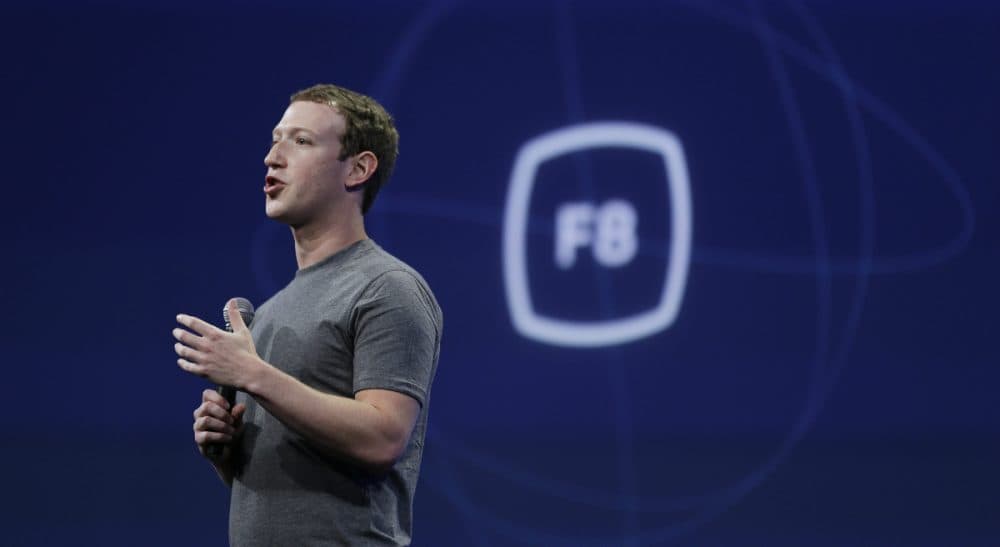Advertisement
Thumbs Down On Facebook's 'Dislike' Button

That Facebook's capacity as a medium for subtle and complex expression is severely limited is a given. Aside from being an innocuous messageboard for the news-of-me, the social network is also a known hotbed for cranks, over-sharers and bullies.
As I’ve written about previously, in 11 short years Facebook has also created its own tricky emotional world. Users can easily become obsessed with counting how many people “like” or comment on their posts, and conflate that raw number with a measure of their own self worth.
So you’d think that the news announced last week that Facebook will soon test a new feature, something akin to a “dislike” button, would be welcome. Surely, the new option would turn the social media platform into a more nuanced form of communication? A forum for more complex emotional expression? A more humane place?
Adding 'dislike' now gives you two ways to reply, but it’s still a woefully primitive way to communicate, the equivalent of flicking the lights on and off...
Instead, there’s a danger of “dislike” backfiring.
First, a brief history: Amazingly, “like” has only been around since 2009. According to Facebook engineer Andrew “Boz” Bosworth, the company first flirted with a star rating system, a plus sign, and even considered an “awesome” button before settling on “like” with a "thumbs up" icon (despite the gesture having a derogatory meaning akin to the middle finger in some cultures ).
Facebook has been tossing around the "thumbs down" idea for some time, mainly in response to user feedback. When Facebookers post sad news — a grumpy mood, a bad day at work, or worse, the death of some close to them — their "friends" would prefer to be able to respond with something more than that ubiquitous, and cheerily inane “like” sign.
“What they really want is an ability to express empathy,” said Facebook co-founder and CEO Mark Zuckerberg, as reported by the Wall Street Journal. “If you’re expressing something sad… it may not feel comfortable to ‘like’ that post, but your friends and people want to be able to express that they understand.”
Zuckerberg avoided the flipside of “like” for years, and for good reason: he's aware of thumbs-down's potential pitfalls. Last December, back when Zuckerberg was still against the idea of a “dislike” button, he said in a public Q&A that, “We need to figure out the right way to do it so it ends up being a force for good, not a force for bad and demeaning the posts that people are putting out there." He wasn’t looking to duplicate the “up-vote/down-vote” button that drives popularity over on Reddit.
I think he should have heeded his original instinct.
For one, the “dislike” button risks turning Facebook into even more of a popularity contest than it already is. "Likes" act as feel-good positive reinforcements. "Dislikes" will be used to acknowledge bad news like a death in the family, for sure. But users will also use "dislike" to shoot down people's postings of their happier accomplishments and other self-promotional posts. This could have the effect of making people feel even worse, and might contribute to the culture of shaming or even amplify the effects of online bullying.
Facebook says they want people to use the new button only to express sympathy. But that’s not going to be the case. According to the New York Times, being able to dislike something “with the flick of a finger” is likely to make Facebook “a meaner, uglier place.”
Besides, two buttons don’t come close to a user being able to display the range of human emotion. Does “dislike” mean general distaste, or disagreement? Sadness or heartbreak, sympathy or empathy? If one of your Facebook "friends" posts something racist, sexist or otherwise offensive, this button won't be able to register the rage you're feeling. Heck, emojis express 50 more shades of emotion than this like/dislike business ever will.
Of course, you can always add a comment to a post. But as Zuckerberg rightly noted in his talk, many users skip commenting because they don’t feel up to the pressure of having to be clever, quick-witted (or snide) all the time.
Another solution, albeit an unlikely one, would be to prevent Facebook users from being able to weigh in on each other’s content at all.
Clicking “like” is the way most users, overwhelmed by the volume of posts to respond to, express themselves. Adding “dislike” now gives you two ways to reply, but it’s still a woefully primitive way to communicate, the equivalent of flicking the lights on and off, or a Roman emperor dealing life or death by giving a gladiator thumbs up or down.
Here’s the thing. Rather than Facebook pretending to be a forum for nuanced emotional expression, or duping its users into thinking that two choices, instead of one, makes their platform more evolved, Zuckerberg should just ditch the “yes/no,” “up/down” binary entirely.
One idea is to replace "like" with a simple "check," or "gotcha" or "understood." Some neutral way to register receipt, and to acknowledge a post, that is neither positive nor negative. One that simply says, "I read this" or, "I hear ya."
Another solution, albeit an unlikely one, would be to prevent Facebook users from being able to weigh in on each other’s content at all. From Facebook to Yelp to TripAdvisor to Rotten Tomatoes, we’ve become a nation of reviewers, pundits, judges and approval-givers. Remove the like/dislike, as well the comment function, and we’ll no longer have to pretend that we constantly have an opinion.
